In this article:
The kidneys are the bean-shaped pair of organs in the lower back.
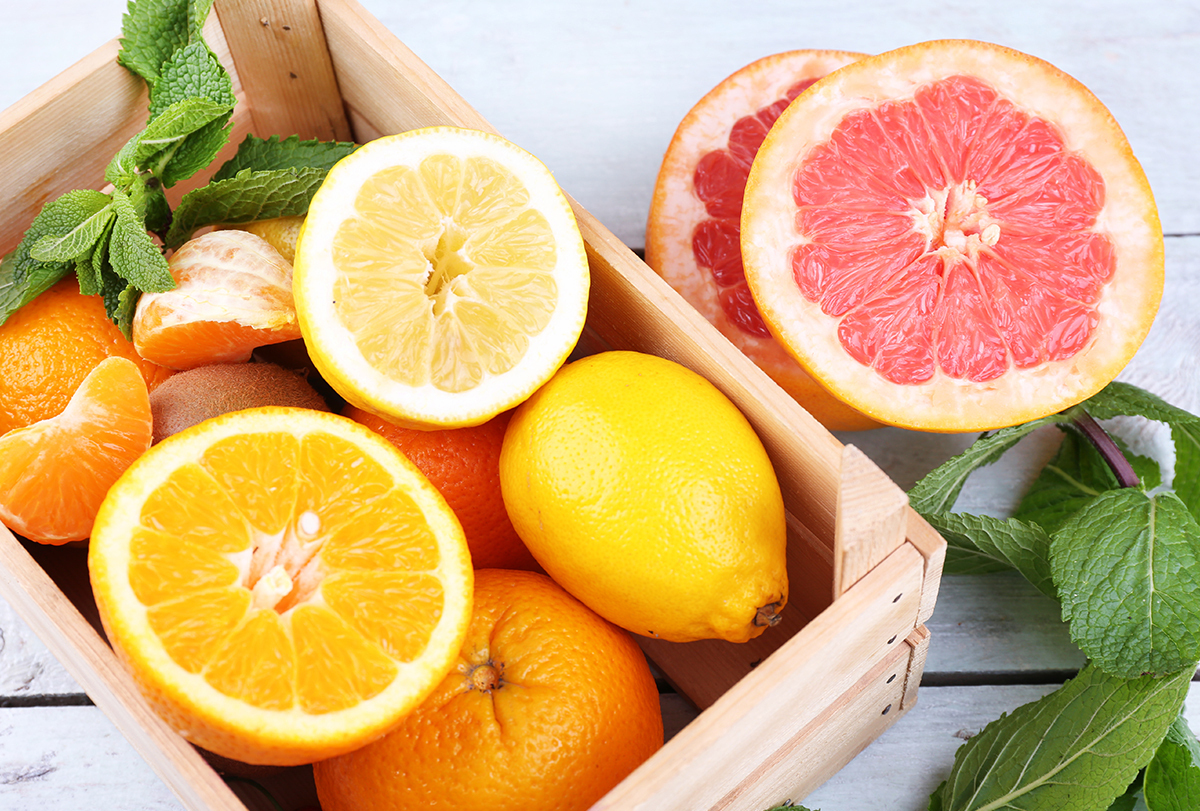
You may already know their main function to be the excretion of waste and toxins from the body, but what you may not know is they also balance electrolytes, pH, and blood pressure. These organs are also a site for vitamin D metabolism and the production of some hormones. (1)
Changes in the body such as fluid loss (during diarrhea and vomiting), burns, bleeding, and low blood pressure and certain medications can cause kidney damage. This can disturb all of the physiological functions that the kidneys carry out, resulting in serious health consequences. (2)
One of the ways to manage kidney health is through the diet by including micronutrients that aid kidney function. (2)
Top Foods to Aid Kidney Function
Include these foods in your diet to support healthy kidneys.
1. Kidney beans
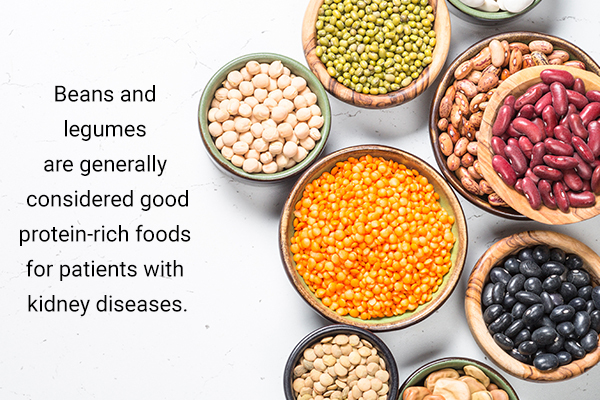
Beans and legumes are generally considered good protein-rich foods for patients with kidney diseases. (3)
Red kidney beans improve the health of blood vessels and reduce the risk of heart diseases. Since blood pressure changes are a cause of kidney damage, including kidney beans may protect the organ from damage. (4)
Consume one portion of kidney beans 2–3 times a week for beneficial results.
2. Citrus fruits and juices
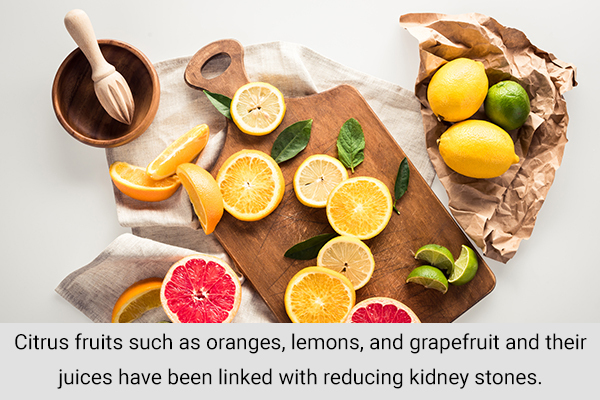
Citrus fruits such as oranges, lemons, and grapefruit and their juices have been linked with reducing kidney stones. (5)
Reviews of studies have found that orange juice and lemon juice have an alkalizing effect on the body, thus reducing the risk of kidney stones. However, it also found grapefruit juice to be a risk factor for stones. (5)
In animal studies, the flavonoids in citrus fruits have been found to reduce uric acid and calcium deposits in the kidneys. (6)
3. Apples
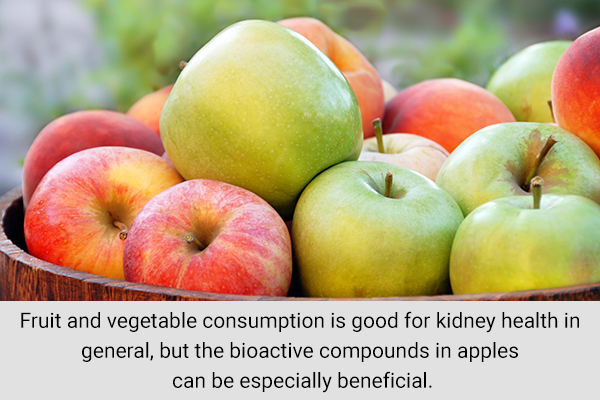
Fruit and vegetable consumption is good for kidney health in general, but the bioactive compounds in apples can be specifically beneficial. (7)
Green apple is particularly abundant in certain flavanols that can prevent the accumulation of fat in the kidneys. (8)
4. Cauliflower
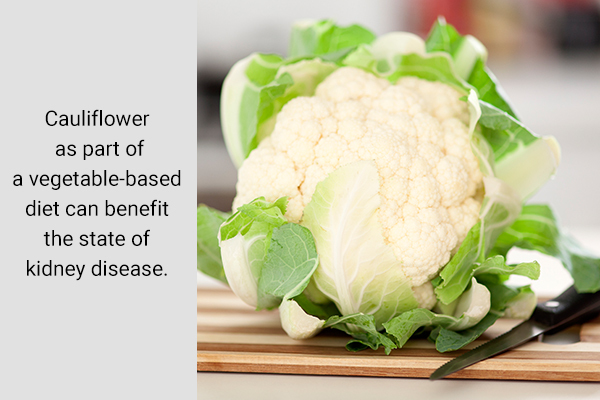
Cauliflower as part of a vegetable-based diet can benefit the state of kidney disease. (9)
It can be used to manage potassium levels in people with chronic kidney disease, and its fiber content can reduce complications of the disease. (10)(11)
5. Ginger
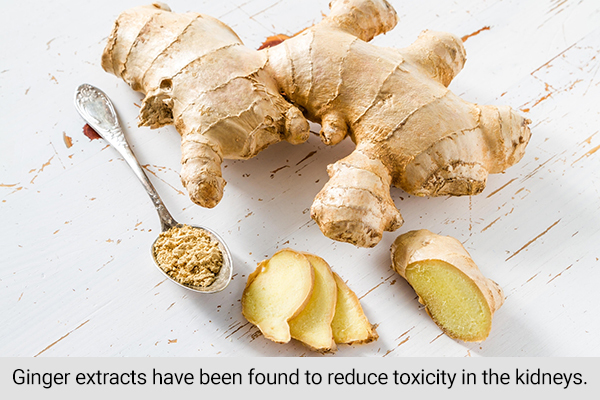
Ginger extracts have been found to reduce toxicity in the kidneys. These extracts improved the antioxidant capacity in the kidneys, reduced inflammation, and restored the organs’ structure and proper functioning. (12)
6. Blueberries
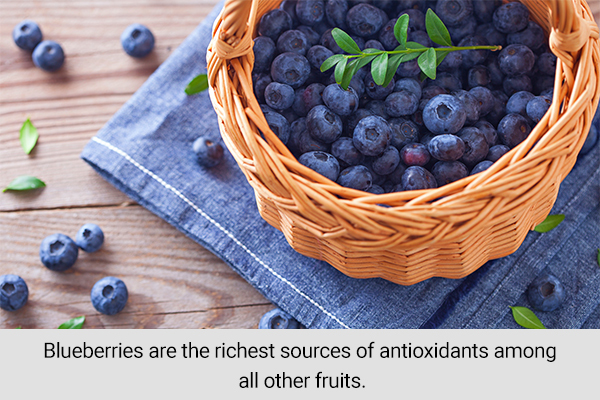
Blueberries are the richest sources of antioxidants among all other fruits. (13)
Animal studies have reported blueberry reduced oxidative stress in the kidneys, improving their functioning. (13)
7. Beetroot
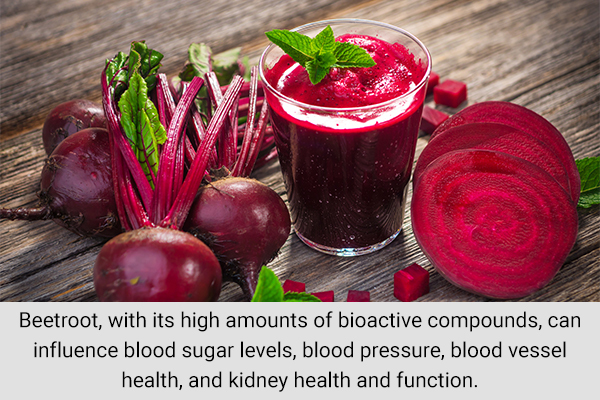
Beetroot, with its high amounts of bioactive compounds, can influence blood sugar levels, blood pressure, blood vessel health, and kidney health and function. (14)
The antioxidants in beetroot can improve the antioxidant status in the kidney, and the nitrate content balances blood pressure, thus preventing damage to the kidneys. (14)
Consume one beetroot daily to reap its benefits.
8. Olive oil
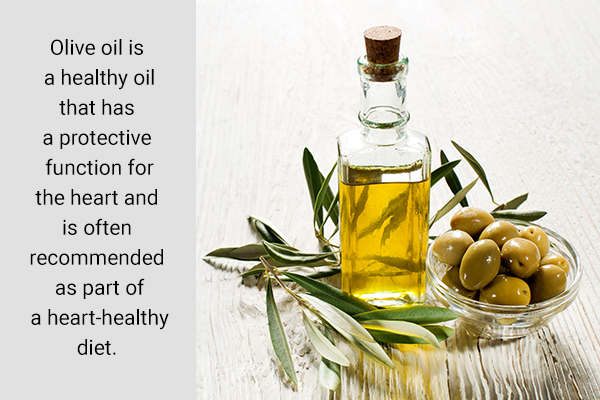
Olive oil is a healthy oil that has a protective function for the heart and is often recommended as part of a heart-healthy diet. But the polyphenols in olive oil also protect the kidneys by improving the antioxidant status in the organs. (15)
Olive oil also improves blood sugar levels and can protect the kidneys from diabetes-induced damage. (15)
Use 1 tsp olive oil drizzled over your food or in salad dressings to gain its benefits.
9. Walnuts
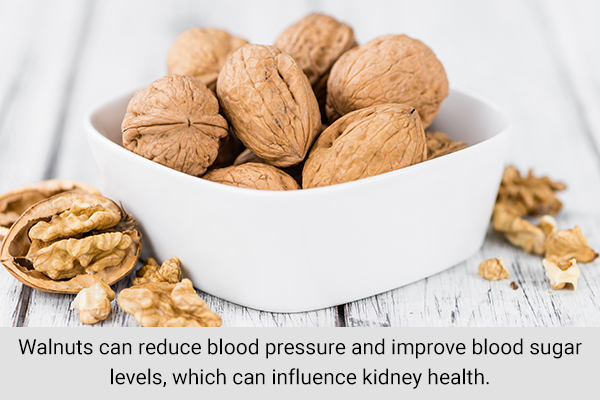
Consumption of nuts 1–6 times each week has been linked to a lower risk of chronic kidney disease. (16) Walnuts can reduce blood pressure and improve blood sugar levels, which can influence kidney health. (17)
Do not overconsume walnuts (more than 5–6 pieces) as the high protein and phosphorus content can be detrimental to kidney health. (18)
Precautions to Consider
Kidney diseases, whether it is an acute injury or chronic kidney disease, require a particular diet balanced in many nutrients such as protein, sodium, and potassium.
How much of these nutrients need to be consumed can vary from person to person depending on how severe the condition or disease is. Therefore, it is highly recommended not to make any food choices on your own and instead to consult a dietitian to decide on a diet plan that will work best for you.
Most-Asked Questions
How do I keep my kidney healthy?
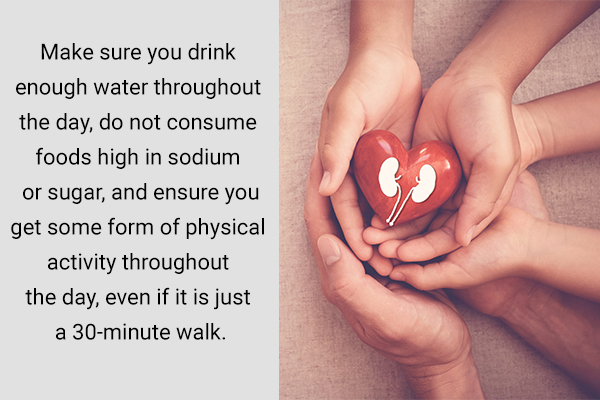
Make sure you drink enough water throughout the day, do not consume foods high in sodium or sugar, and ensure you get some form of physical activity throughout the day, even if it is just a 30-minute walk.
If you have high blood pressure or diabetes, make sure you are managing them optimally.
How do I know my kidneys are not functioning well?
Since the kidneys are responsible for maintaining a state of balance in the body, one of the earliest warning signs of kidney damage will be edema, or swelling of the limbs and fingers, because of water retention.
You may also have difficulty in peeing, or the color of your pee may be drastically different than what you are used to. You may also experience fatigue and headache.
Final Word
The kidneys are vital organs to human health. By balancing the levels of water, sodium, and potassium, the kidneys contribute to maintaining a state of balance in the body. They also act as blood filters by excreting waste.
Acute kidney injury due to medication, blood pressure changes, and unmanaged sugar levels such as in diabetes can be reversed by consuming foods that not only aid kidney function but also manage the causes of kidney damage.
Chronic kidney disease is a different condition, wherein damage to the kidneys may be more prolonged and severe. In this case, medical and dietary interventions are required to restore kidney health. It is generally a good practice to consult a dietitian to get the best dietary plan suited to your needs.
- Was this article helpful?
- YES, THANKS!NOT REALLY


